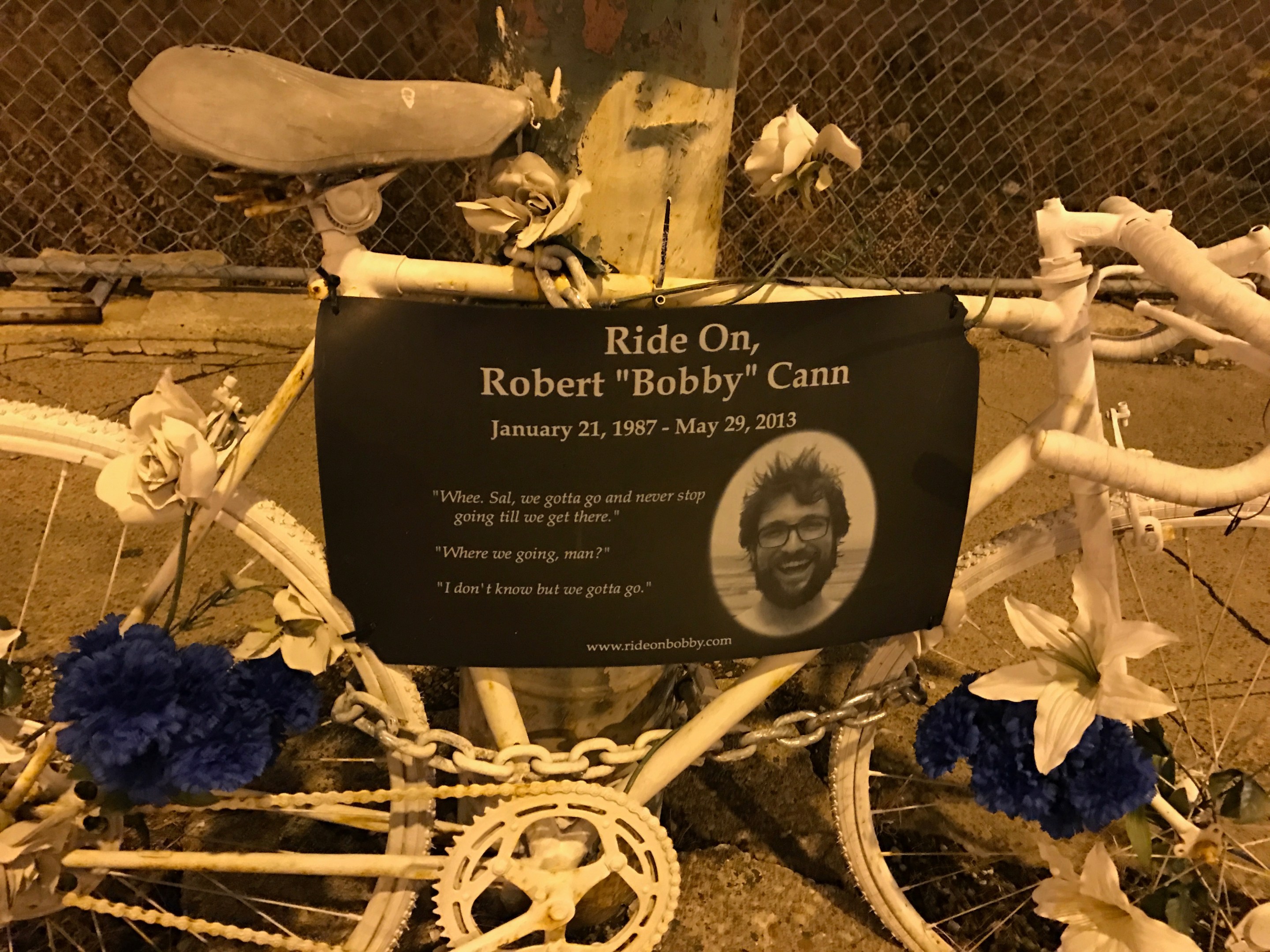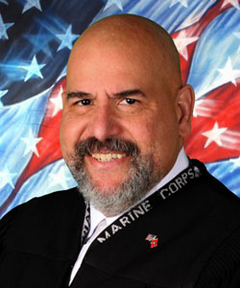As recently reported in the Chicago Tribune, family and friends of fallen cyclist Bobby Cann, 26, have been speaking out about the unreasonably light sentence of 10 days jail for Ryne San Hamel, the driver who killed Cann while drunk and speeding. Judge William Hooks gave San Hamel the sentence, which also includes four years probation and $25,000 in reimbursement for funeral expenses, as part of a plea deal after the defendant pleaded guilty to reckless homicide and aggravated DUI last Thursday.
To explain his reasoning behind the minimal sentence, Hooks told the court, “If I have somebody that gets it and is remorseful — and even though there’s a cry for retribution — I have to weigh what Ryne San Hamel needs,” according to a DNAinfo report. However, Hooks didn't seem to take into account the needs of Cann's grieving loved ones.
"The reason [the sentence] was so hard for everyone was [that] we wanted and still want justice and it doesn't feel like justice was served," said Catherine Bullard, who was dating Cann prior to the May 29, 2013, crash, told the Tribune. “The message this sends is you can get drunk and you can choose to get behind the wheel and you can kill someone and if you express enough remorse over a three-year, eight-month period and after all that time plead guilty, you can get away with it."
While San Hamel, now 32, expressed remorse and asked for forgiveness at Thursday’s hearing, Cann’s mother Maria told the Tribune that his words didn’t seem sincere. “He never took responsibility and he never apologized," Cann said. "He spent a good deal of his time describing what happened after the crash and what a hero he was for running over to Bobby and holding his hand and talking about how Bobby went to a better place. It was offensive."
The crash occurred at about 6:35 p.m., after San Hamel had celebrated Cubs victory in Wrigleyville, according to prosecutors. San Hamel, who worked for a bar specials website called All You Can Drink, was driving his Mercedes Benz southeast on Clybourn Avenue when he fatally struck Cann, who was biking home from work, as he rode north on Larrabee Avenue. The cyclist went through the windshield and his leg was severed. He was pronounced dead a half-hour after the crash.
Although prosecutors said San Hamel had a green light, several hours after the collision he was found to have a blood-alcohol level of 0.15 percent – nearly twice the legal limit. Investigators also determined that he was going at least 50-60 mph in a 30 mph zone.
I contacted Cann family lawyer Todd Smith from the personal injury firm Power Rogers & Smith to get his take on the sentence, and for an update on the wrongful death lawsuit that the family is pursuing against San Hamel and the bars that allegedly over-served him. “What troubled me a lot [about the sentence] was that there was supposedly this enormous remorse, which didn’t seem to be backed up by what was argued by San Hamel.”
The case dragged on for years while the defense tried to get the case dismissed on various technicalities. San Hamel eventually hired high-paid celebrity attorney Sam Adam Jr., who argued that the crash was Cann’s fault because San Hamel had the green, Smith said. “San Hamel was drunk, his driving was out of control, and he didn’t brake at all. For a lawyer to say that we wouldn’t even be in court if it wasn’t for Bobby’s actions smells of a complete lack of remorse to me.”
“I thought Sam Adam’s argument was at least offensive, if not absurd,” Smith added. “Bobby was riding a bike that weighed something like 20 pounds. Here’s a 4,000-pound car flying through the city, hitting him so hard that it tears his leg off and leaves him bleeding on the pavement, and then they blame him? That’s not remorse, that’s someone who’s likely to do this again.”
While the Cook County state’s attorney office had requested a sentence of three to 14 years and was involved in the conference that led to the plea deal, Smith said that the prosecutors had no ability for force the case to go to trial. “In Illinois, the right to a jury trial is strictly the defendant’s [prerogative] and the sentencing is purely up to the judge. The state is there to make their case, but if the judge chooses a sentence that they don’t like, there’s not much they can do."
Before the fatal crash, San Hamel had twice been arrested on alcohol-related charges while behind the wheel, both in 2003, the year he graduated from high school, the Chicago Reader reported. In the first incident he was charged with underage drinking and received four months supervision, and in the second he was charged with misdemeanor DUI, which was dropped as part of a plea deal. Hooks, who was present at Thursday’s hearing, said the latter case was mentioned in court.
However, it’s possible that Hooks didn’t weigh the prior arrests heavily in his sentencing decision because they took place a decade before San Hamel killed Cann. In addition, Adam told the Tribune he submitted over one hundred letters in support of the defendant to the judge asking for probation, rather than jail time, which surely influenced his decision.
Since that the criminal case is resolved, the civil case can proceed, Smith said. He explained that prior to the guilty plea, San Hamel would have likely taken the Fifth if he had been called in for deposition, the process of taking out-of-court, under-oath testimony. “Now he can no longer take the Fifth, so the deposition can move forward and will be sometime soon.”
Did you appreciate this post? Consider making a donation through our PublicGood site.







